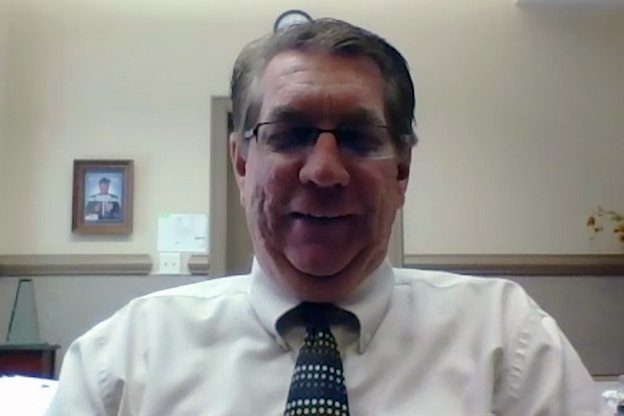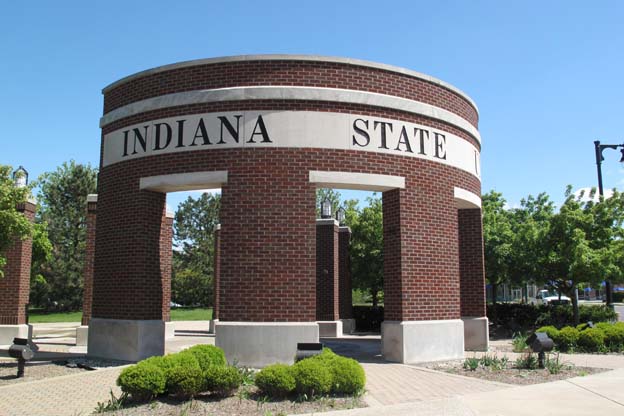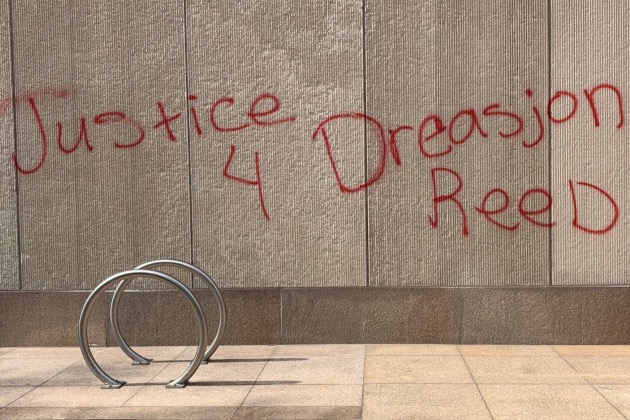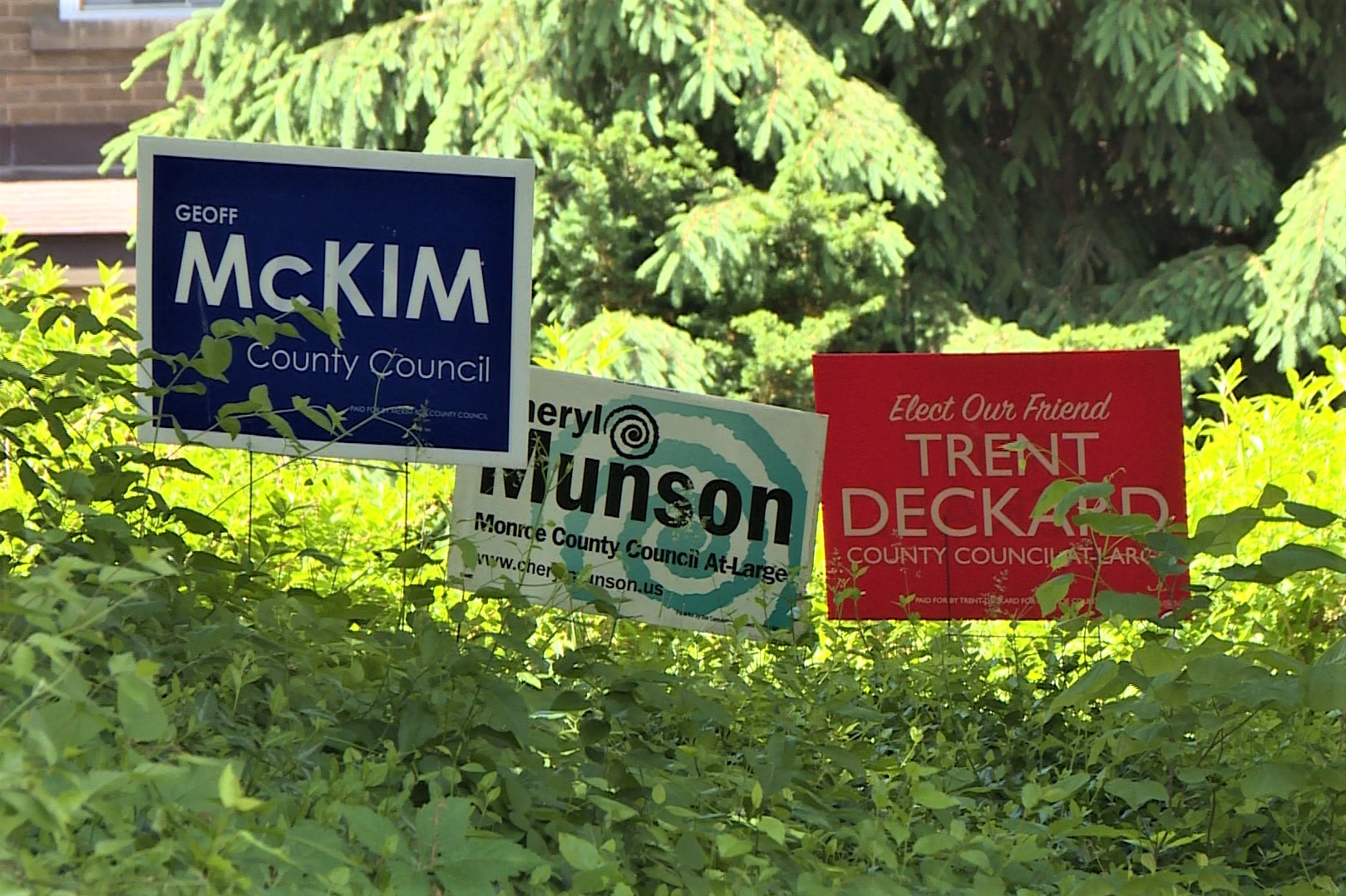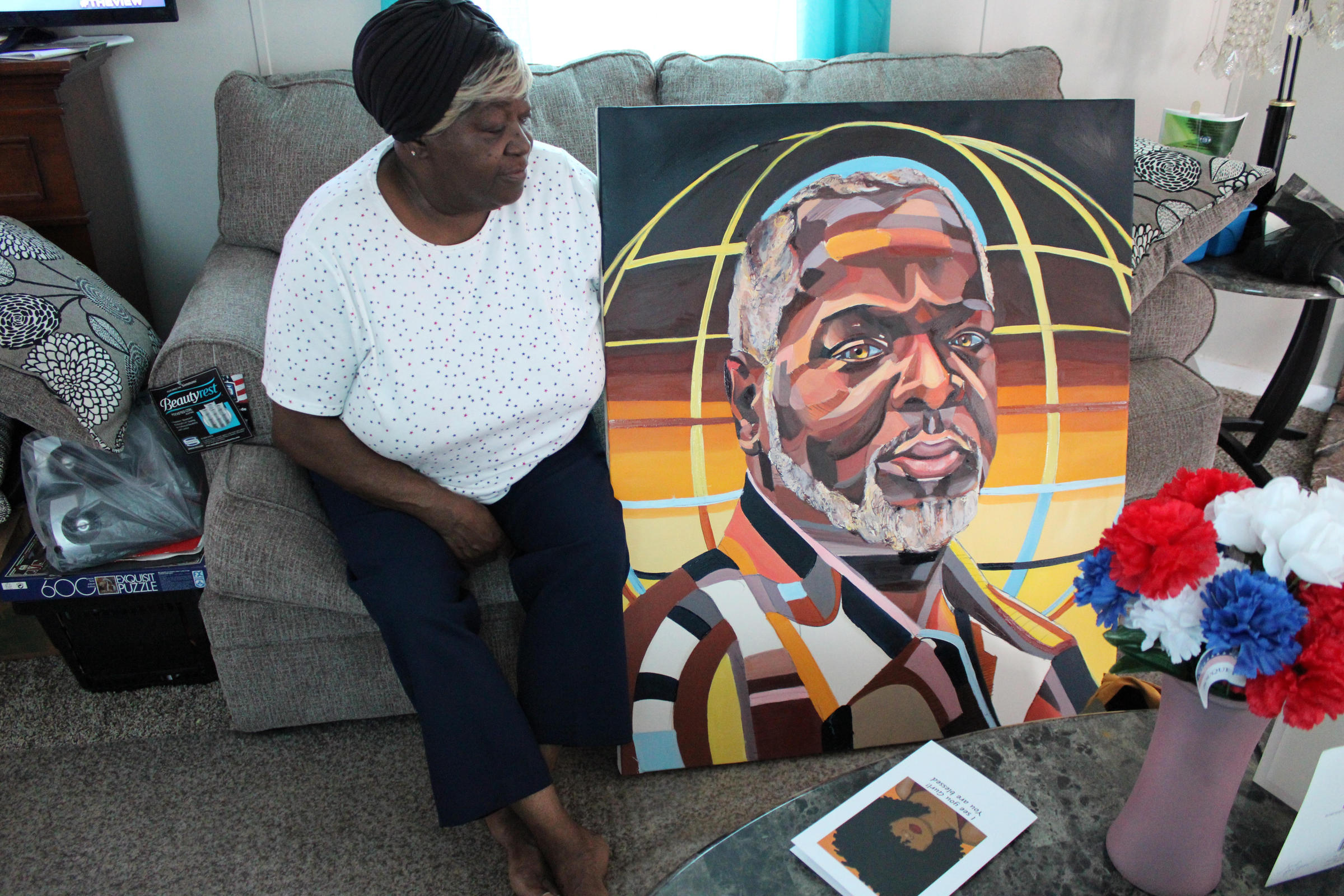Thank you for joining us again. It's good to be here, Joe.
So let's just get into what everyone's talking about right now. This past week's protests over the death of George Floyd, of course, and every community it's become a different and a bigger issue. What's the scene like Ben there in Terre Haute? I know there were some protests and they had some police out on forced to
get we had several days of protests. The first one was a week ago Saturday. And then we had some tense moments Saturday evening. But I think everybody did a good job, you know that people were frustrated and I get that there was a lot of emotion. And we had some, you know, verbal confrontations with police and some blocking of roads and things like that, but it wasn't terrible. And I think everybody just wanted to be able to say their piece. And so we did our best job to keep them safe, you know, from that environment. And then of course, protest on Sunday night. And then on Monday night, we had a few issues and we had to make some arrests. And from that point on, all the protests were very well behaved. People did a great job, but once again, making their voice be heard. We're able to march they weren't the courthouse, typically they started there. We didn't really have no vandalism, no damage to property. You know, we were very fortunate that we had our protesters here were very well behaved Overall, we had a few issues, like I said early on, but those were all mitigated very quickly. And then on Saturday, we had our last big march from City Hall, basically to the police station. And it went very well. Everybody was cooperative. They were in a good mood. They were just, you know, once again, wanting to be able to express themselves and they did that in a very professional way.
So we I noticed there was some tense moments. What are the Maybe the rules or ordinances in Terre Haute in terms of what what were they breaking?
Well, the main thing was they were blocking traffic on a US Highway that was kind of an issue for the state police more than it was for our city police. But you know, that kind of a thing. We had one battery kind of situation where a bottle was thrown at somebody. And then we had a fight that broke out after Saturday night's event, there was people who were involved in the protests, but then it was after the fact. And so you know, I think it was just emotions running high for most of that. And so what we want to do is make sure when we needed to have the streets cleared, we needed people to be able to slide Walker, back at the courthouse, and there were some folks that just they didn't move that night and the police had to make a decision to get the road back opened up and so it wasn't anything horrible. I just think it was kind of a standoff there for a while and we had to Kind of get it going again. And so the police made the right decision. And, you know, I it's it's unfortunate we didn't want to arrest anybody. We wanted people to be able to, you know, state their case. And they did that. And so overall very happy with the way the protesters and
yeah, I did want to ask you that in terms of protocol for, you know, the mayor of Terre Haute and how that because protests don't like this at this scale don't happen rarely at all. So what what's the protocol or what happens when you hear Okay, you know, Mr. Mayor, we're seeing hundreds, maybe thousands could protest tonight.
So we the police did a really good job. So after that first Saturday when we kind of got a pretty good feel about the typical size or what we thought would be the typical size and about 300 people that first Saturday. And so the police did a really good job of just making sure we protected them that they even though they were moving down the street We closed the streets ahead of them behind them. So we didn't have any traffic coming in, we kind of just worked with the group to kind of try to figure out, you know, what they might do, where they might march to and what kind of issues we might have. And then so from that point on, we just tweaked our plan. And so we didn't have as bigger crowd than until this following Saturday. But it was much more peaceful than the first one was in the way of just, you know, that we, they went down one street, you know, this past Saturday versus going on multiple streets and things like that. And so I think everybody just adapted, you know, they wanted to, once again, to be able to be heard, and we were able to do that and to protect them. There were some potential issues with maybe some counter protesters, so we had to be ready for that. So the protocol was really a law enforcement driven thing to just be prepared to make sure no matter who shows up, that we keep everybody safe and we allow everybody to, you know, exercise their first amendment rights, and I feel like It worked out great for everyone.
So I heard you say that you know what the protests are about being heard, but a lot of people want change. What can Are there any elements of change that the Terre Haute police department or administration can look back on and say, this moment in this era of US history of Terre Haute history did make some change?
Well, I think when I say that being heard, I think that's kind of the first step. I mean, obviously, there's a reaction to a bad bad thing that happened up there in Minneapolis, but nobody can justify. And so I think immediately, then you'd begin to look within and say, okay, does this apply to us specifically, there's always things that can apply to us. But when you're talking about the police department, what have we done to ensure that we're positioning ourselves to not let those things happen? And so back in 2016, we became accredited. That was the first time the terror police department is going through an accreditation process. We were re accredited in 2019. And a lot of these things apply directly what we've already done. We've got the bias training in place, we have diversity training in place, we have de escalation training, and we have a new de escalation training that we're going to be taking all of our officers through in October. This has already been set up and already scheduled, but we're taking them through a whole nother phase of that. So there are several things that many police departments don't do or don't do on a regular basis that we have been doing. So now we're kind of looking beyond that to say, Okay, how do we ramp this up even more? What do we do? Where's our weak spots? Where's our weakling fat? And so one I feel really good about what we've done over the last four years, positioned ourselves where we are today. One of the biggest things we're looking at right now is body cams. We started earlier this year. We actually started about two or three years ago, but the price was Just weigh out. I mean, it was gonna cost us a million and a half dollars and we didn't have it, no property tax tax and all the issues that we faced, we didn't have 100, you know, a million and a half dollars sitting around to do that, well, pricing has come down. There are more programs in place to pay for this over time versus having to pay for it up front with the ongoing costs. And so it looks like we can get into two body cams for all of our uniformed officers for about 150 to $200,000 a year for a five year agreement that we have our second evaluation, we've already looked at one of the vendors, one of the primary vendors, and evaluated that when we have another one coming in next week to kind of finalize this will select the vendor, negotiate a contract, and hopefully have body cams in place by the end of this year. All of that was already underway. It's just something we've been wanting to do which adds right into this. It's a perfect thing to to open up accountability and let people know and we'll be able to do so much more with the body cam
as we move forward
that's the focus areas.
As we move forward to of course we have the Coronavirus going on still pandemic in the background. Where's Terre Haute and Vigo county in terms of reopening right now? And how's that process going? Do you feel like things are getting safe more safe?
I do you know, our numbers are still going up a little bit. We're just under 200. Now in the beginning, so I feel good about that number overall hospitalizations, those things, you know, that's not an issue. It's just there are people testing positive and some of them have mild symptoms and some of them you know, have no symptoms so that it seems like it's kind of plateaued, if you will, from that perspective in order to tiny increase because more casting and more people you know are obviously you To open things up, you're gonna have a few more people that are going to get it. We're right on schedule with the governor's plan. So I don't know if they'll make any changes this week, we'll see. I'm hoping playgrounds can open soon. That's a big demand. People really want that to happen. We'll see what the governor decides to do on that. Or are we opened up the dimming Park pool this week, big crowd turned out for on the first day. So people were excited to be able to get in the pool. We followed all the system, social distancing guidelines, you know, it's just hard to do some of this stuff. It's not easy to say, well, only 90 people can come into the pool area, you need to move your chair over, you know, those things are difficult. We're not staffed for that extra kind of work. But we think it's important as part of this opening and trying to return to some normal environment, that we need to have these things available to people. And we're just going to have to hunker down and make sure that people follow the rules because we don't want anything to take off and grow on it. And have spread. So I think these incremental steps are important. I think there's some people that are still staying home just saying, Hey, I'm gonna wait a little longer I get that and you've got other people that are ready to hit the ground running. So I think this strategy is working and we're not seeing any huge uptick and people are still being pretty conscious. People still need to wear masks when they're in public. I'm not seeing a lot of that I see some, but I think that'll help us the most especially if you've been exposed to someone or you're you've got any symptoms of a cold or anything. Just wear a mask to protect the other folks around you by not spreading it so I can't overemphasize that enough. You know, I wear one when I go publicly last night I went to real King for a minute Isle of Man and my I dropped my mask earlier I apparently I found that a city when I left last night, so I didn't have one of my cars I ran into got something real quick. But you know, I've tried to do that and I see other people doing it but not a vast majority. So let's all want to say once again is we're not out of the woods yet. Let's Don't you know, underestimate what could happen. Let's just use a little common sense.
Just really quick about the Deming Park pool are. Are there special regulations that you did an Act to open that because I know a lot of cities are not opening pools, but you Yeah.
And you know, I was a little surprised that that I guess I understand that they just don't want to mess with that and don't want to contribute to a potential spread. But I've been told by many doctors that approval areas vary as long as you keep the chlorine levels, right, which you need to do anyway. It'll kill that off and being outside is obviously better than being inside anyway. So those are two things. Working in your favor was cool, but we had to move the chairs away. You know, if it's your family, you can move the chairs back and send them back. We clean them after people get up and leave, just doing all those typical things. And then our lifeguards and other staff wear masks except when they're up on the stand. And of course, when they're if they're have to get the water, but I think it's, it's not hard. It's not overwhelming kind of things. It's just once again, getting the people who are coming into the pool to cooperate with us to make sure we clean things when they get up and leave, and they follow the rules while they're there. There's no reason why Google can't be open in our first day went really, really well. Well, I expect it to be that way. The rest of the summer.
Yeah. I just said, Yeah, you see some of these beaches in other parts of the country, that social distance outside water, and then you see the photos and everyone's together, and he's huge. And I guess that's what I was asking was, was those regulations being adhered to,
but it sounds like they were and you know, you just once again, people have to use common sense. And then they have to know that if they don't do this stuff, and the numbers start going out, maybe we have to close the rule of thumb, you know, at some point, so, you know, I leave that to individual people, ever Nobody knows about this. Everybody knows what how it spreads. And I think us opening that up was a positive thing. We just hope people use it properly.
I want to ask you about Indiana State University. I don't think there's an actual rollout plan for fall yet.
Are you getting there? I mean, they're talking they're going to be bringing athletes and others back for training and stuff soon, and bringing starting to bring staff back on campus. But, uh, Dr. Curtis said they'll be rolling out their formal plan here soon, but things are gearing up to bring people back.
Are you a part of that discussion? And how do you feel about you know, here you are in a city, a university with thousands of people all of a sudden coming in at once?
Yeah, not directly. And I've had many conversations with Dr. Curtis and her staff about kind of where this is going. I think they're trying to develop their plan and then that will engage us more with that, because when you're bringing people in from hotbeds as an agent Apple, you could be bringing more of the COVID-19 here. And so we all have to kind of be working together from the perspective to ensure that when people are traveling to another community that we're, you know, doing all the precautions we can to keep a new, you know, second wave or whatever you might want to call that, because of that exact thing. All winch downs are going to be ones you're gonna have to watch very closely.
I think the other thing that maybe not being talked about enough is asymptomatic to because you could have the virus but not show symptoms. So how is that being addressed?
Yeah, you know, that's really difficult. So
anybody you talk to whether you're talking about the college environment or not, when you have people who a lot of people, I think, have had it and had no symptoms. I think if we ever get testing, where you're really going through this, and you get all these people to give their blood and you can find out if those antibodies are there. I think we're going to Find out that a much bigger percentage than what anybody thought was exposed to it. But the problem is, you don't know that and you don't know who could get it again or not. So I think there's still so many unknowns about them. I have no idea how you really address that. Because unless you test everybody, there is no other way. And I think you just have to be cautious. If you've come from a community where there's a lot of it going on where they've got a spike, then we got to be a little bit more cautious with those folks. And they need to be more upfront with us as a community to say, Hey, you know, can I get tested here? What What do I need to do to help ensure that I'm not bringing it to the community? I just think this is something that a year from now we're probably going to know a ton of stuff. But even today, it seems like every day I hear some new piece of information that contradicts something we thought or something that makes me feel better about what they did. What they told us. Here's the way it was gonna play out. I don't think anybody has all the answers.
We just have a few minutes left, but I did want to get to the casino because last time we talked, that was the week of the meeting with the state and then you were very optimistic about them granting the casino license. And that did happen.
didn't make me more excited about that, you know, we've put a lot of work in to get it to that point, and I just wanted that meeting to happen. So I have a specific question when I joined. Yeah, no, no,
you're fine. I obviously this came out of an investigation, but there were some changes made with spectacle entertainment, do the what what are those changes? And how does that make you feel better moving forward with them in Terre Haute?
So the previous owner and legal counsel for spectacle group prior to the local spectacle group, they were going to be a part of that and when that investigation came about, the only way to separate this was to have those two to step out of this casino. And so the local owner, Greg Gibson, bought them out. They're still part of the Gary casino, they're still partners in that, because that license already been issued in this case in order to issue a license. The state, you know, they didn't want that kind of a issue or conflict to be on the table, which makes perfect sense. I get that. And so in order for that, to take the next step, great. You had to become the sole owner plus his other investors, not including those two that were identified as part of that investigation, doesn't mean they can't rejoin later when all that shakes itself out. And that was mentioned during the call, you know, the the vote and everything that one of the commissioners asked that very question, but it has to go back in front of the Commission, if they ever want to be a part owner of this or, you know, majority owner or whatever. So that's to be dealt with later. It's funded through Greg and his investors. And so we can move forward now and construction can begin. So his plan is to break ground in September. And by the end of next year, I'll have a casino up and running.
How's the city doing budget wise? financing? Of course.
I know we talked about really well, things are better than I thought they were going to be. I was there was a lot of Doomsday conversations out there about you know, how revenues and there still may be, you know, a negative trend, but for March, April and May, we're down a little bit on sewer revenues look like about $300,000 which isn't bad. We were down in mbh and LRS funds about $150,000 each month and went down about that's what our revenue loss is. Our property taxes came in better than I thought they would we won't really know for sure until people pay in July and and we get a collection at the end of July. But it wasn't as bad catastrophic as I thought it might be and what I was told it probably would be so so far, so good. Our food and beverage taxes down but we had reserves in place so lodging taxes down significantly. But hopefully as people begin to travel this summer that'll least start moving in the right direction. So directly for the city, not bad at this point, food and beverage tax and lodging tax, which funds for specific things related to the Civ. Stefan a little bit there, but hopefully we can turn the tide.
Well, thank you. That was about all I had. Did you have any other announcements or things you'd like to mention?
No, I don't think announcements one on one little thing I'd like to mention, which I think is kind of neat. We put a pump track in down at our skate park. We had a local contributor or somebody who wanted to make an anonymous donation to that and a local vendor who was willing to install it at their costs. And so that donation cover that and then it just recently opened up we want to do a little ribbon cutting off soon, but I saw a bunch of kids down there using it this past weekend. It was just really neat. That, and you know, a lot of them had masks on. They were doing the right social distancing things, you got to do it by yourself anyway. But when they were in groups and, you know, which is good to see kids out and doing some things, and you know, this gives them something to keep them occupied, and to keep them out of trouble, maybe get them out of the house a little bit from all, you know, so I was excited to see that project get completed and at no cost.
Great. All right. Thank you very much. Appreciate it. Hope to see you next month.
Okay, Joe, thank you. All right. Thank you.







